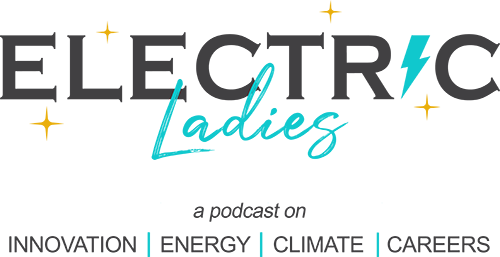“This is really a pivotal moment for businesses, for brands to behave the best way possible as citizens and to contribute in the best way they can for the public good, rather than to be seen as a good company,”
Anne Bahr Thompson, branding expert and author of “Do Good:
Embracing Brand Citizenship to Fuel Both Purpose and Profit, told me on my podcast, Green Connections Radio. “Being a citizen at this moment is far more important.”
Thompson’s firm’s Culture Q research “confirmed that customers unequivocally are demanding more value, more service, better ethics and a greater focus on sustainability and social good,” as she wrote in her book. “Brand citizenship is a way of doing business – from a company’s core purpose; to its delivery of good and services; to its responsibility to its employees, community, the environment and the world – that people trust, believe in and rely on…all with the aim of earning profits that are maintainable over the long term.”
 As we reinvent our economy emerging from the wreckage of the pandemic, we need to remember we are also facing the converging crises of racial injustice, rampant inequality, and the devastating impacts of climate change. It’s not over when everyone’s receives a covid vaccine.
As we reinvent our economy emerging from the wreckage of the pandemic, we need to remember we are also facing the converging crises of racial injustice, rampant inequality, and the devastating impacts of climate change. It’s not over when everyone’s receives a covid vaccine.
This is what investors call environment, social and governance – or ESG – factors and it’s good business too. The Financial Times’ FT Adviser reported in mid-November that, “Companies with better environmental, social and governance ratings had better returns in almost every month of 2020 so far.”
As financial data company Factset put it in their year-end review, “2020 is the year of ESG.” It looks more like 2020 ushered in the Era of ESG.
So how can leaders reinvent their organizations for the new ESG Era?
Here are six questions leaders can ask about their organizations’ policies, culture and values from experts I interviewed this year:
Where does ESG direct our focus to?: Investopedia defines ESG as: “Environmental criteria consider how a company performs as a steward of nature. Social criteria examine how it manages relationships with employees, suppliers, customers, and the communities where it operates. Governance deals with a company’s leadership, executive pay, audits, internal controls, and shareholder rights.”
 What is your relationship to your customers?: “It’s time to step back and figure out what your relationship with your customers is. How do you communicate messages of togetherness…empathy and compassion that are so vital in this moment?” Thompson said. Are you really listening and responding to your customers?
What is your relationship to your customers?: “It’s time to step back and figure out what your relationship with your customers is. How do you communicate messages of togetherness…empathy and compassion that are so vital in this moment?” Thompson said. Are you really listening and responding to your customers?
How generous are you?: It’s about a generosity of spirit as well as of dollars and policies. Diane Irving, long-time human resources executive told me, “Is this a generous organization or is this not a generous organization? You get a reputation.” This includes generosity with your team — from offering generous paid leave and health insurance policies, to cutting senior executive pay in a downturn before laying people off, to offering remote work flexibility long-term – as well as being generous with your customers, suppliers and the wider community.
Are you trustworthy?: In addition to building trust with your team, you need your customers and suppliers to trust you too. The pandemic caused organizations to reconfigure their supply chains, as Christopher Cordaro, Chief Investment Officer of wealth management firm RegentAtlantic, told me. Trust requires transparency, not spin. Trust requires authenticity, not “corporate speak.” Can your stakeholders trust you?
 Do you value diversity – of ideas and experience as well as of people?: Look at your organization’s data. Listen to your team. Your customers come from all walks of life, men and women, all ethnic groups, all ages and stages, all socioeconomic levels. So should your decision makers. There are numerous examples of product failures due to decision makers not relating to their markets. Or, too few new ideas resulting in crises, such as in the 2008 financial crisis, which the International Monetary Fund attributed to “groupthink.”
Do you value diversity – of ideas and experience as well as of people?: Look at your organization’s data. Listen to your team. Your customers come from all walks of life, men and women, all ethnic groups, all ages and stages, all socioeconomic levels. So should your decision makers. There are numerous examples of product failures due to decision makers not relating to their markets. Or, too few new ideas resulting in crises, such as in the 2008 financial crisis, which the International Monetary Fund attributed to “groupthink.”
Lack of diversity can be life-threatening too, as Dr. Corinne Post of Lehigh University and her colleagues on an extensive, ground-breaking study of the medical products industry found earlier this year. “Severe product problems that injure or kill consumers are recalled much faster when there are females on the board,” Post said. Specifically, medical products that were determined to be highly defective – from vaccines to treatments to stents – were recalled 28 days faster when two or more women were on the company’s board. A lot of people can die in that 28-day lapse (more than 65,000 from December 1 -28, 2020 from covid-19).
 How are you driving the debate?: From infrastructure to insurance, regulations and public policy affect much more than just your taxes. Inconsistent or outdated public policy can destroy your company and the environment, and cost lives, as we’ve experienced firsthand in the inept federal government response to this pandemic. As the planet continues to warm, sea levels continue to rise, and more extreme weather events escalate, leaders must take a stand on energy- and environment-related policies to protect their employees, customers, suppliers and operations.
How are you driving the debate?: From infrastructure to insurance, regulations and public policy affect much more than just your taxes. Inconsistent or outdated public policy can destroy your company and the environment, and cost lives, as we’ve experienced firsthand in the inept federal government response to this pandemic. As the planet continues to warm, sea levels continue to rise, and more extreme weather events escalate, leaders must take a stand on energy- and environment-related policies to protect their employees, customers, suppliers and operations.
The new year ushers in a massive paradigm shift in every area of society triggered by the convergence of so many massive crises at once. Within every crisis is opportunity, though, so leaders have a chance to rise to the occasion. We can put the economy back together differently and be better citizens, both personally and as employers, and in a way that is better for people, planet and profit.
Asking yourself these six important questions is a valuable place to start.
Originally published at https://www.forbes.com.









